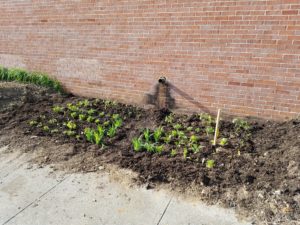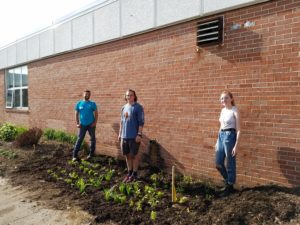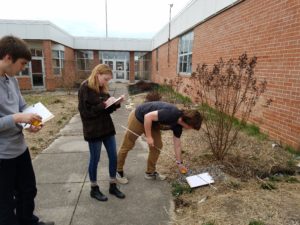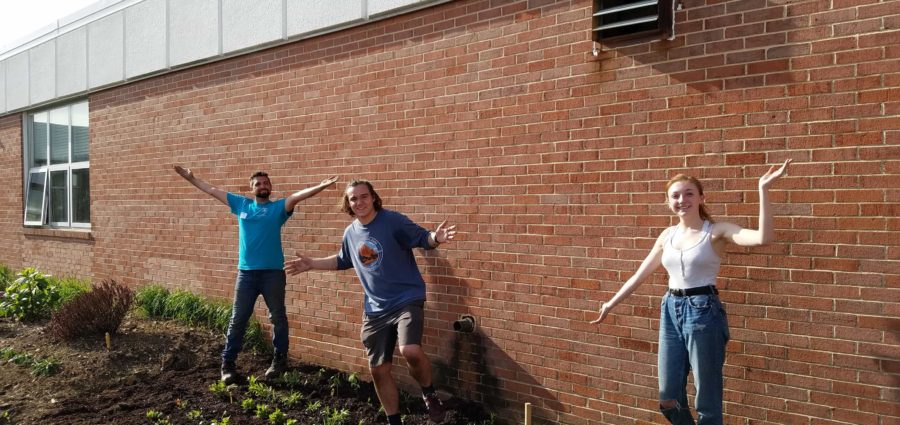The Science National Honor Society (SNHS) of Jefferson High School improved their school’s courtyard with a rain garden and native tree propagation program to revitalize the space and protect watersheds.
Through lessons on the importance of native plants and biofiltration, Jefferson High School environmental science students came to understand the role that rain gardens and trees have in mitigating stormwater from impervious structures, which are materials that water cannot sink into. After the lessons, the student volunteers helped to design their own rain garden in the school’s courtyard to absorb rainwater that flows off the roof. After students selected a site and chose native plant species, Cacapon Institute prepared the space by tilling the soil and adding absorbent sand to help the water sink into ground. During the spring, the high schoolers helped to plant the 100 flowers to create a pollinator habitat that functioned as a rain garden.
In addition to their efforts in planting a rain garden, SNHS members also potted seventy-five tree saplings in the courtyard. In the coming year, these dogwood, redbud, and red maple saplings will be able to sold or donated to the community to increase the number of trees that will filter pollution, add wildlife habitat, and prevent flooding.
A big thank you to the Science National Honor Society student volunteers and lead teacher, Dayna Juraschek, for their efforts to protect local rivers and streams.




